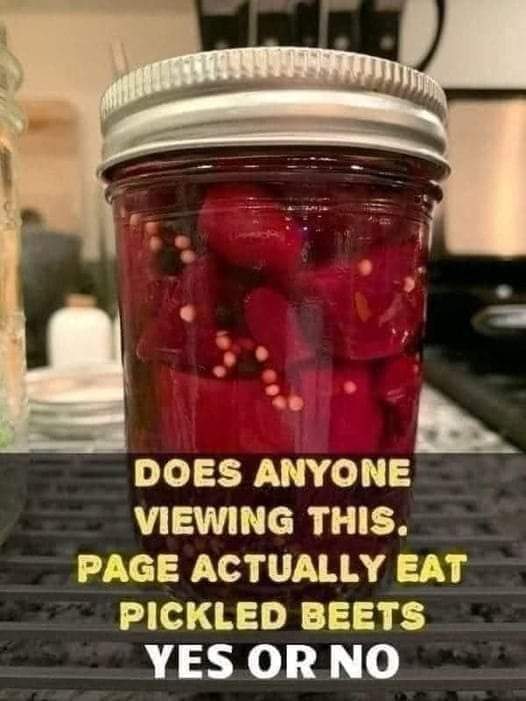ADVERTISEMENT
This recipe for Quick Pickled Beets without Sugar is simple, fuss-free, and doesn’t require you to boil the pickling liquid! And yes, no sugar needed when you are working with only the most sweetest vegetable on earth.
Before we dive into the Quick Pickled Beets recipe, let’s touch upon: are pickling and fermentation the same?
No, they are not. Although pickling and fermentation both are ways to preserve food, they are quite different in accomplishing the desired outcome.
For starters, pickling is a quick, straightforward process in which you submerge the food you want to preserve in acidic liquid. This liquid delays the decay and keeps bacteria at bay. In the process, the food you are pickling becomes sour (in a delicious sort of way!) and also softer than its usual texture.
Fermentation on the other hand, is a little more complicated. Although brine is also used in fermentation, it is not the same acidic brine that is used for pickling. And instead of killing off bacteria, the fermentation process harnesses the power of certain bacteria to transform the carbohydrates into alcohol that preserves the food. The end result is similar to pickling in that you have food that is sour (although more complex than pickle sourness), more tender, and will keep for months.
Health-wise, fermented food is healthier than pickled food because it contains a good bacteria (not all pickled food has this) which is extremely beneficial for gut health.
How long do quick pickled beets last?
Like most pickled vegetables, this will keep for up to three months in the fridge. Just make sure not to reduce the amount of salt in the recipe. Moreover, if you intend to keep your jar of pickled beets for as long as it is possible, take the extra step of sterilizing your container. In our home, pickled steamed beets rarely last long. No, they don’t go bad — we just can’t stop snacking on them!
How to cook beets
Apparently, what most people do is that they boil the beets, set them aside, and prep the pickling liquid by boiling the mixture before putting the two together. I was a bit baffled by this.
To me, steaming is a gentler way to cook vegetables. Steaming is a better cooking method if you want to retain a vegetable’s precious nutrients. In some cases, steaming even brings out more nutrients from a vegetable by “softening” it on a cellular level. On the other hand, a lot of nutrients are lost during boiling because it’s a stronger cooking process and the vegetable is in contact with water the entire time.
Another option is to roast the beets in the oven before you start the pickling process. Roasting is the best way to retain all the nutrients of the vegetable; however I don’t consider this process to be quick. Once your oven pre-heats, it takes about an hour to roast the beets (depending on the size of the beets). Steaming on the other hand only takes 20 to 25 minutes.
Do you have to heat the vinegar before pickling?
Apparently, heating the vinegar or pickling juice (or brine) helps with releasing the flavors of the veggies and in dissolving the salt completely. Not heating the vinegar and salt mixture won’t affect its ability to preserve the vegetable and prevent bacteria from populating. Moreover, pickling with cold vinegar can help retain a vegetable’s crisp. To learn more on how to pickle with heated brine, check out How To Pickle Any Vegetable.
If you want to skip heating the brine but you are concerned about safety, you don’t have to worry about anything. However, you must be careful not to reduce the recommended amount of salt needed for the recipe you are following because the salt here is one of the keys in preventing bacterial growth.
That said, I had to try this popular pickling method myself and guess what? I didn’t really taste any difference between the two methods. So boiling the liquid just felt like an extra step in my case; especially if I already steamed my vegetables.
Are pickled beets good for you?
In general, beet is an amazing vegetable to have at hand and persevere to use when wanted. It supports good health for digestion, brain and heart. They are considered to boost your immunity and physical performance.
When pickled beets are fermented, they are rich in probiotics that helps improve gut health. If you are looking for pickles containing the growth of “healthy bacteria,” then try a recipe by The Spruce Eats. Again, fermentation is the best pickling method for digestive health, but the process is not as quick; it takes several days.
Ingredients:
- 8 medium fresh beets
- 1 cup vinegar
- 1/2 cup sugar
- 1-1/2 teaspoons whole cloves
- 1-1/2 teaspoons whole allspice
- 1/2 teaspoon salt
Preparation
Read more on next page➡️
ADVERTISEMENT
